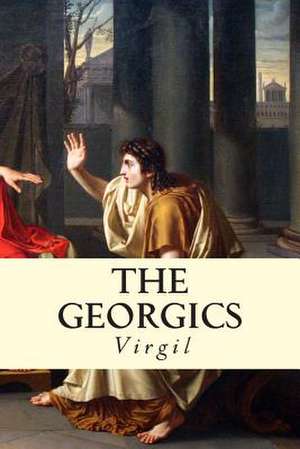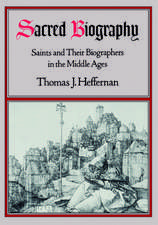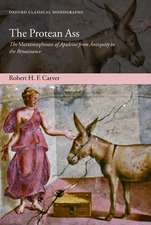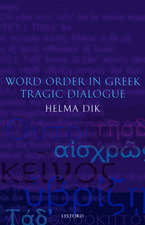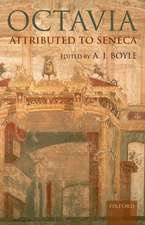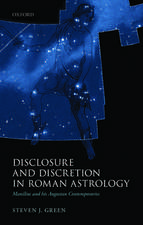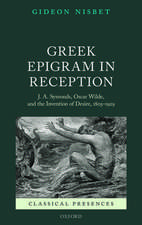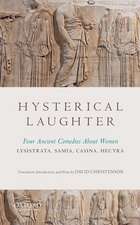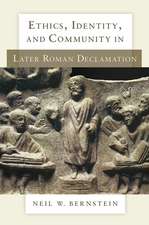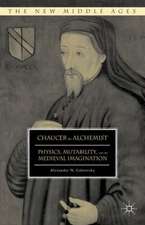The Georgics
Autor Virgilen Limba Engleză Paperback
Preț: 49.07 lei
Nou
Puncte Express: 74
Preț estimativ în valută:
9.39€ • 10.04$ • 7.83£
9.39€ • 10.04$ • 7.83£
Carte disponibilă
Livrare economică 28 martie-11 aprilie
Preluare comenzi: 021 569.72.76
Specificații
ISBN-13: 9781502713438
ISBN-10: 1502713438
Pagini: 132
Dimensiuni: 152 x 229 x 7 mm
Greutate: 0.19 kg
Editura: CreateSpace Independent Publishing Platform
ISBN-10: 1502713438
Pagini: 132
Dimensiuni: 152 x 229 x 7 mm
Greutate: 0.19 kg
Editura: CreateSpace Independent Publishing Platform
Notă biografică
Virgil (70 BC-19 BC) was a Roman poet. He was born near Mantua in northern Italy. Educated in rhetoric, medicine, astronomy, and philosophy, Virgil moved to Rome where he was known as a particularly shy member of Catullus¿ literary circle. Suffering from poor health for most of his life, Virgil began his career as a poet while studying Epicureanism in Naples. Around 38 BC, he published the Eclogues, a series of pastoral poems in the style of Hellenistic poet Theocritus. In 29 BC, Virgil published his next work, the Georgics, a long didactic poem on farming in the tradition of Hesiod¿s Works and Days. In the last decade of his life, Virgil worked on his masterpiece the Aeneid, an epic poem commissioned by Emperor Augustus. Expanding upon the story of the Trojan War as explored in Homer¿s Iliad and Odyssey, the Aeneid follows the hero Aeneas from the destruction of Troy to the discovery of the region that would later become Rome. Posthumously considered Rome¿s national poet, Virgil¿s reputation has grown through the centuries¿in large part for his formative influence on Dante¿s Divine Comedy¿to secure his position as a foundational figure for all of Western literature.
Descriere
Descriere de la o altă ediție sau format:
'A countryman cleaves earth with his crooked plough. Such is the labourof his life. So he sustains his native land ...'Virgil's affectionate poem of the land does not admit brief excerpts, any more than the labour of the farmer can easily be shortened. His verse, descriptive and narrative, brings us the disappointments as well as the rewards of the countryman's year-round devotion to his crops, his vines and olives, livestock great and small, and the complex society of bees. Part agricultural manual, part political poem and allegory, the Georgics' scenes are real and vivid, and the poet-farmer Peter Fallon makes us feel the sights, sounds, and textures of the ancient Italian landscape.'the combination of truth to the words Virgil wrote, natural vernacular speech and a general at-homeness on the land make Fallon's an inspired translation' Seamus Heaney, Irish Times'magnificent new translation...Fallon is the perfect translator for the Georgics' Bernard O'Donoghue, Times Literary Supplement ABOUT THE SERIES: For over 100 years Oxford World's Classics has made available the widest range of literature from around the globe. Each affordable volume reflects Oxford's commitment to scholarship, providing the most accurate text plus a wealth of other valuable features, including expert introductions by leading authorities, helpful notes to clarify the text, up-to-date bibliographies for further study, and much more.
'A countryman cleaves earth with his crooked plough. Such is the labourof his life. So he sustains his native land ...'Virgil's affectionate poem of the land does not admit brief excerpts, any more than the labour of the farmer can easily be shortened. His verse, descriptive and narrative, brings us the disappointments as well as the rewards of the countryman's year-round devotion to his crops, his vines and olives, livestock great and small, and the complex society of bees. Part agricultural manual, part political poem and allegory, the Georgics' scenes are real and vivid, and the poet-farmer Peter Fallon makes us feel the sights, sounds, and textures of the ancient Italian landscape.'the combination of truth to the words Virgil wrote, natural vernacular speech and a general at-homeness on the land make Fallon's an inspired translation' Seamus Heaney, Irish Times'magnificent new translation...Fallon is the perfect translator for the Georgics' Bernard O'Donoghue, Times Literary Supplement ABOUT THE SERIES: For over 100 years Oxford World's Classics has made available the widest range of literature from around the globe. Each affordable volume reflects Oxford's commitment to scholarship, providing the most accurate text plus a wealth of other valuable features, including expert introductions by leading authorities, helpful notes to clarify the text, up-to-date bibliographies for further study, and much more.
Recenzii
Chew's translation is, both in aesthetic and scholarly terms, an excellent piece of work. I find her approach refreshing and true to the spirit of the Georgics ; her adventurousness strikes me as just the thing to rescue the poem from the appearance of blandness that a more straightforward style of translationese would inevitably, but misleadingly, impose upon it. This Georgics does not read much like any previous version of it. Chew helps the English reader to get a sense of Virgil's avant-garde poetics, which is the main thing that almost all translators of the Georgics work to eliminate, if indeed they are even aware of it. First-rate. --Joseph Farrell, Professor of Classical Studies, University of Pennsylvania
This is a translation with a difference, intended for readers without Latin. The most striking feature is the use of variations of type and layout. . . . Invocations are set out like memorial inscriptions; tasks or points to look for in animals come in the form of numbered or bulleted lists, assembling a plough reads like an instruction manual. Similes appear in italics, but so do the key words in some descriptive passages. The positioning of the text is used to illustrate the meaning of a quincunx, terracing, or the flight of a swarm of bees. These innovations serve to distinguish between what might be termed the poetry and the practical. Explanations are sometimes incorporated into the translation, which is in free verse, but mostly these are in the generous footnotes. . . . Chew has done considerable research into ancient and modern methods of husbandry and the notes concentrate on agriculture, astronomy, and botany. . . . Some [renderings] are particularly apt: 'the cicadas' complaining plainsong bursts the strawberry trees' for 'cantu querulae rumpent arbusta cicadae;' 'the murmur of the groves grows and grows' for 'et nemorum increbescere murmur.' . . . Chew should certainly achieve her aim of bringing the work to a wider readership. As she claims in her Introduction, 'Plain and simple, it is an American Georgics .' _--Anne Haward, The Joint Association of Classical Teachers Review
My graduate seminar members and I enjoyed Dr. Chew's rendering of the Georgics immensely. We were delighted and instructed by her playful blend of argots and typefaces, and by her artful blend of information in the notes. This translation opened the poem for me all over again--and it has long been among my favorites. Chew's translation offers a dazzling survey of musical styles in the poem. The fifteen of us send our thanks for her provocative and delightful achievement. ---Thomas A. Goodmann, University of Miami
This is a translation with a difference, intended for readers without Latin. The most striking feature is the use of variations of type and layout. . . . Invocations are set out like memorial inscriptions; tasks or points to look for in animals come in the form of numbered or bulleted lists, assembling a plough reads like an instruction manual. Similes appear in italics, but so do the key words in some descriptive passages. The positioning of the text is used to illustrate the meaning of a quincunx, terracing, or the flight of a swarm of bees. These innovations serve to distinguish between what might be termed the poetry and the practical. Explanations are sometimes incorporated into the translation, which is in free verse, but mostly these are in the generous footnotes. . . . Chew has done considerable research into ancient and modern methods of husbandry and the notes concentrate on agriculture, astronomy, and botany. . . . Some [renderings] are particularly apt: 'the cicadas' complaining plainsong bursts the strawberry trees' for 'cantu querulae rumpent arbusta cicadae;' 'the murmur of the groves grows and grows' for 'et nemorum increbescere murmur.' . . . Chew should certainly achieve her aim of bringing the work to a wider readership. As she claims in her Introduction, 'Plain and simple, it is an American Georgics .' _--Anne Haward, The Joint Association of Classical Teachers Review
My graduate seminar members and I enjoyed Dr. Chew's rendering of the Georgics immensely. We were delighted and instructed by her playful blend of argots and typefaces, and by her artful blend of information in the notes. This translation opened the poem for me all over again--and it has long been among my favorites. Chew's translation offers a dazzling survey of musical styles in the poem. The fifteen of us send our thanks for her provocative and delightful achievement. ---Thomas A. Goodmann, University of Miami
